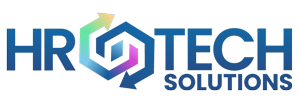What is a Human Resource Information System (HRIS) and Why Do You Need One?
In today's fast-paced business environment, managing human resources effectively is vital for organizational success. Companies are increasingly relying on technology to streamline HR operations, and a pivotal tool in this transformation is the Human Resource Information System (HRIS). But what exactly is an HRIS, and why is it indispensable for modern businesses? In this blog, we'll break down the key functions of an HRIS and explore why partnering with HR Tech Solutions can help you find the right system for your needs.
What is a Human Resource Information System (HRIS)?
A Human Resource Information System (HRIS) is a software solution that centralizes, automates, and streamlines various HR functions and processes within an organization. It serves as a comprehensive database for employee information, facilitating tasks such as recruitment, onboarding, payroll, benefits administration, performance management, and compliance. By integrating multiple HR activities into a single platform, an HRIS enhances workflow efficiency, improves data accuracy, and supports overall organizational effectiveness.
Core Functions of an HRIS
Employee Data Management: An HRIS acts as a centralized repository for storing and managing employee information, including personal details, job history, performance records, and more. This centralization ensures easy access and retrieval of data when needed.
- Recruitment and Onboarding: From posting job openings to tracking applications and managing candidate information, an HRIS simplifies the recruitment process. It also streamlines onboarding by automating tasks such as document collection, training schedules, and orientation programs.
- Payroll and Benefits Administration: Managing payroll and employee benefits can be complex and time-consuming. An HRIS automates payroll calculations, tax deductions, and benefits enrollment, reducing errors and ensuring timely payments.
- Performance Management: An HRIS facilitates performance appraisals, goal setting, and employee feedback. By providing a structured framework for performance reviews, it helps organizations track and improve employee performance effectively.
- Time and Attendance Tracking: With integrated time and attendance modules, an HRIS simplifies the process of tracking employee work hours, managing leave requests, and ensuring compliance with labor regulations.
- Compliance and Reporting: Ensuring compliance with labor laws and regulations is critical for any organization. An HRIS helps maintain accurate records, generate compliance reports, and stay up-to-date with changing legal requirements.
Why Do You Need an HRIS?
- Increased Efficiency and Productivity: By automating repetitive tasks and reducing manual data entry, an HRIS frees up HR professionals to focus on strategic initiatives. This increased efficiency leads to higher productivity and better resource allocation.
- Improved Data Accuracy and Security: An HRIS minimizes the risk of errors associated with manual data handling. Additionally, it provides robust security features to protect sensitive employee information, ensuring data integrity and confidentiality.
- Enhanced Decision-Making: With access to real-time data and comprehensive analytics, HR managers can make informed decisions regarding workforce planning, talent management, and employee development. An HRIS provides valuable insights that drive strategic decision-making.
- Cost Savings: Automating HR processes reduces administrative overhead and operational costs. Organizations can save money by minimizing paperwork, streamlining workflows, and optimizing resource utilization.
- Better Employee Experience: An HRIS empowers employees with self-service capabilities, allowing them to access and update their information, request leave, view payslips, and participate in performance evaluations. This enhances employee engagement and satisfaction.
- Scalability and Growth: As organizations grow, managing HR processes manually becomes increasingly challenging. An HRIS offers scalability, allowing businesses to adapt and expand their HR operations seamlessly.
How HR Tech Solutions Can Help You Find the Right HRIS
Choosing the right HRIS can be a daunting task, given the multitude of options available. This is where HR Tech Solutions comes in. Our team of experts specializes in understanding your unique business needs and identifying the best HRIS to meet those requirements. Here’s how we can help:
- Needs Assessment: We start by conducting a thorough analysis of your current HR processes and future goals to understand your specific requirements.
- Vendor Selection: Based on our assessment, we shortlist the most suitable HRIS vendors and provide detailed comparisons to help you make an informed decision.
- Implementation Support: Our support doesn’t end with selection. We assist you throughout the implementation process, ensuring a smooth transition and minimal disruption to your operations.
- Training and Support: We provide comprehensive training to your HR team to ensure they can effectively use the new system. Additionally, we offer ongoing support to address any issues that may arise post-implementation.
Ready to Transform Your HR Operations?
Investing in an HRIS is a strategic move that can revolutionize your HR operations. By centralizing and automating HR functions, an HRIS not only improves efficiency and accuracy but also empowers your HR team to focus on strategic initiatives that drive organizational growth. If you’re ready to take your HR strategy to the next level, connect with us at HR Tech Solutions to learn more about how we can help you implement the perfect HRIS for your organization.

.jpg?width=352&name=Blog%20Banners%20(66).jpg)

